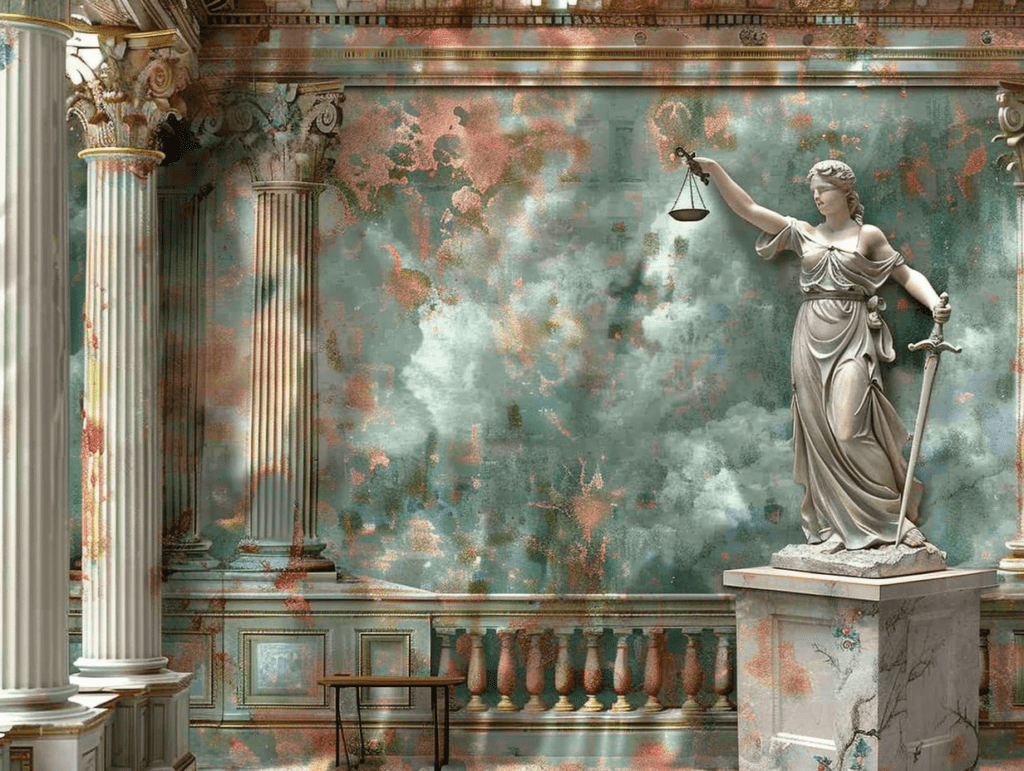Jesus commanded us to love our enemies. The vitriol of our politics — the violent rhetoric, the animosity, the refusal to engage in democratic deliberation — is not loving our enemies. It seems to me that Christian nationalism isn’t very Christian, in word or deed.
Jesus hated fame, loathed fortune, and eschewed power. So many of these fake Christians and Christian nationalist groups fundraising for the profane idol of Trumpism are drunk on all three.
They’ve tied capitalism and Christianity together in a way that is both wholly unsupported by the Bible and wholly antithetical to the foundational idea of growing the size of your market, not shrinking it. Jesus threw the moneylenders out of the temple, condemning the commercialization of religious practice. And yet the commercialization of religious practice is alive and well in the American version of Christian nationalism.
Jesus loved the poor, and frequently warned about the dangers of wealth and greed. He told the parable of the Good Samaritan, who stops to help a total stranger in need, expecting no help in return — and said “go and do likewise.” He was very much an original Social Justice Warrior.


Politics and spirituality are opposites
Jesus also said to render unto Caesar what is Caesar’s, and to God the things that are God’s — indicating that he believed politics and spirituality were not a good mix. God’s realm is not like this one, and he does not care about our petty political trifles. He cares that we love our neighbors as ourselves.
Which is a value I believe in and agree on, even though I’m a Buddhist. There is much wisdom from pretty much all the religious doctrines worth listening to and adopting, even if one does not adopt the symbolism of the identity tropes of a chosen religious practice. Morality does not depend on being a member of the Christian faith or any other particular faith — despite the claims of some in the right-wing. There are moral people everywhere, getting up every day and doing their best to be good humans, good citizens, good neighbors, good parents, friends, volunteers, and so on.
Humans first, tribes second
We have to put our humanity ahead of our group identities if we have a chance of surviving the coming wars — the climate war, the food and water wars, the new cold war, lawfare, and new escalations of the information warfare and psychological warfare around the globe. We are all more alike than we are different — a deep truth that Jesus knew and shared strongly, asking us to live and share that message ourselves, even when it’s sometimes hard.
We don’t always agree with our neighbors, and we certainly don’t agree with our enemies. It’s tough to see their ideas as equal or ours as potentially fallible. It’s easy to get caught up in the media frenzy du jour and join whatever pile on of the other side is happening at the moment. Time is also moving so swiftly and it’s difficult to pause and take a breath before reacting sometimes.
But we must do it, for the good of all humanity. We must in this moment be inspired to higher callings — not just to the symbolism of the Christian religion, but to the substance of it as well. If you want people to adopt your beliefs, you should be practicing what you preach. Otherwise one might be seen as a hypocrite.
The Myth of the Christian foundation
Is America a Christian nation? No.
The Framers saw the ills of a state church from their break with England; they saw ruinous early experiments in Christian theocracy in the colonies; and as educated upper class men of their time they were philosophers who genuinely wished to set up a resilient, secular system for America’s people to use far into an unknown future.
They believed in Enlightenment values — and indeed, were very animated by them. They founded a nation to be based on law — not the “law” of kings, aka divine right. They explicitly left behind the idea of authority in government stemming from heaven; instead, the power resides with “we, the people” — if we can keep it.



Comments are closed.